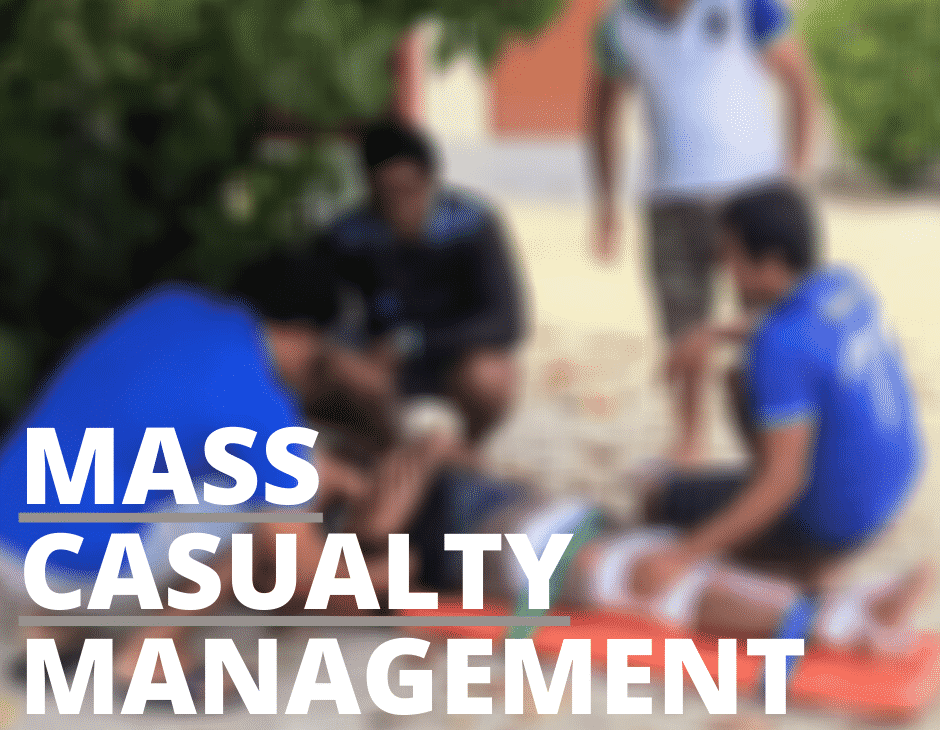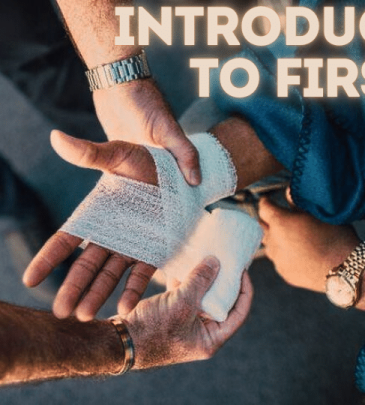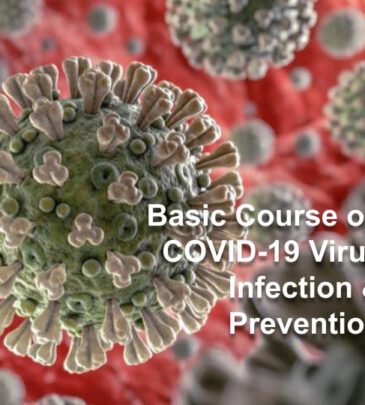Disaster Preparedness and Mass Casualty Incident Management Course
- Safety
- 2 (Registered)

Major emergencies, crises and disasters have become more frequent during recent decades. This is true for countries like Maldives too, especially in the capital Male’ and in island resort (community) settings. They affect more and more people due to overcrowding and increasing economic activities. Effect on lives could be saved if the affected communities were better prepared, with an organized scalable response system already in place. In addition, survivors of mass casualty incidents often suffer disabilities or health impairment – physical or psychological. These can severely strain the health sector and draw scarce resources away from other essential programmes. Again, much of this is avoidable.
Experience shows that the local community is the first to provide emergency assistance in such incidents. For this reason, preparedness planning increasingly emphasizes building capacity (human, organizational and infrastructural) at the community level. Empowering communities to develop emergency management plans for mass casualty incidents require strong involvement by stakeholders at all levels.
Aim:
To ensure that participants of the course are able to prepare for a mass casualty incident and are able to effectively manage mass casualty incidents as part of a team.
Objective:
- Help participants to set guidelines and to assist in developing mass casualty management systems in island communities.
- Help management level personnel create systems to help prepare for a mass casualty incident.
- Ensure that participants are able to identify types of hazards most likely to give rise to mass casualty incidents in the community.
- Ensure that participants are able to manage a mass casualty incident with the help of community managers.
- Ensure that participants are able to understand disaster management terminologies.
Target audience
The primary target audience for this course is those responsible for developing, implementing and taking part in mass casualty incident management plans and policies in island communities.
Assessment
Participants will be assessed through online quizzes at the end of each topic. Quizzes can be done multiple times. Average scores of 80% or above from the quizzes are required to pass the course. All lessons and quizzes should be completed to be considered for the certificate.
Attendance
The course will be delivered online through ThinkSAFE Maldives website. Participants will be able to do the course on their own time at their own pace. The typical time limit for the course could be from 5 days to 4 weeks depending on the requirement of the participant’s employer.
Curriculum
- 9 Sections
- 32 Lessons
- 14 Days
- Module 1 - IntroductionIntroduction to the concepts of disaster preparedness and mass casualty management.5
- Module 2 - What is Mass Casualty Management?This module will give the students an idea of how to get ready for a mass casualty situation beforehand.4
- Module 3 - Hazards & RisksThis module will introduce students to understanding of hazards and risks.8
- 4.1Understanding Hazards & Risks
- 4.2Quiz – Understanding Hazards & Risks10 Minutes0 Questions
- 4.3What are hazards?
- 4.4Quiz – What are hazards?10 Minutes0 Questions
- 4.5What are risks?
- 4.6Quiz – What are risks?10 Minutes0 Questions
- 4.7What is a vulnerability?
- 4.8Quiz – What is a vulnerability?10 Minutes0 Questions
- Module 4 - Hazard AnalysisStudents will be introduced to the topic of hazard analysis and its components.5
- Module 5 - Being Prepared for Mass Casualty IncidentsIn this module students will be introduced to different aspects of preparing for mass casualty incidents.8
- 6.1Introduction – Being Prepared for Mass Casualty Incidents
- 6.2Quiz – Being Prepared for Mass Casualty Incidents10 Minutes0 Questions
- 6.3First Aid Training
- 6.4Quiz – First Aid Training10 Minutes0 Questions
- 6.5Workplace-based Training and Information Dissemination Plans
- 6.6Quiz – Workplace-based Training and Information Dissemination Plans10 Minutes0 Questions
- 6.7Communications Planning
- 6.8Quiz – Communications Planning10 Minutes0 Questions
- Module 6 - Defining Mass Casualty Incident (MCI)?This module will teach students how to classify an incident as MCI.10
- 7.1What is a Mass Casualty Incident (MCI)?
- 7.2Quiz – What is a Mass Casualty Incident (MCI)?10 Minutes0 Questions
- 7.3Incident Command System (ICS)
- 7.4Quiz – Incident Command System (ICS)10 Minutes0 Questions
- 7.5The Role of ICS
- 7.6Quiz – The Role of ICS10 Minutes0 Questions
- 7.7ICS Management Systems10 Minutes0 Questions
- 7.8Quiz – ICS Management Systems10 Minutes0 Questions
- 7.9Managing Mass Fatalities
- 7.10Quiz – Managing Mass Fatalities10 Minutes0 Questions
- Module 7 - Mass Casualty ManagementThis module will deal with issues related to the core topic of this training - Mass Casualty Management.12
- 8.1Site management
- 8.2Quiz – Site management10 Minutes0 Questions
- 8.3Triage
- 8.4Quiz – Triage10 Minutes0 Questions
- 8.5Care on site and casualty clearing post
- 8.6Quiz – Care on site and casualty clearing post10 Minutes0 Questions
- 8.7Transport
- 8.8Quiz – Transport10 Minutes0 Questions
- 8.9Special Considerations
- 8.10Quiz – Special Considerations10 Minutes0 Questions
- 8.11Chemical, Biological or Radiological (CBR) Incidents and Decontamination
- 8.12Quiz – Chemical, Biological or Radiological (CBR) Incidents and Decontamination10 Minutes0 Questions
- Module 8 - Health and Welfare of Deployed TeamThis module will look at a very important aspect of disaster management, but sometimes neglected issue - psychological support for first response teams.8
- 9.1Introduction to Health and Welfare of Deployed Team
- 9.2Quiz – Introduction to Health and Welfare of Deployed Team10 Minutes0 Questions
- 9.3Psychological Support for First Responders
- 9.4Quiz – Psychological Support for First Responders10 Minutes0 Questions
- 9.5Managing Stress
- 9.6Quiz – Managing Stress10 Minutes0 Questions
- 9.7Rest and Reflect
- 9.8Quiz – Rest and Reflect10 Minutes0 Questions
- Module 9 - Conducting Regular Training DrillsThis is the final module and will explain the importance of maintaining the training skills.2
Instructor
Mustharshid has worked in the area of humanitarian assistance with International Federation of Red Cross and Red Crescent Societies (IFRC) in the aftermath of the 2004 tsunami in the area of disaster management.
Mustharshid extensively worked with rural communities in the area of community preparedness and emergency response. In this regard, he has working experience with communities of Maldives, India, Sri Lanka, Nepal, Indonesia, Bangladesh, and Thailand.
Mustharshid is a trainer of:
- Community-Based Disaster Management- Search and Rescue
- Vulnerability and Capacity Assessment
- Community Based First Aid and Health (CBFAH)
- First Aid
- Emergency First Response (EFR Corp, California, USA)
He is also trained in:
- Emergency Medical T- Life-Saving and Water Safety
- Community-Based Disaster Risk Reduction
- Planning, Monitoring, Evaluation and Reporting (PMER)
- Logistics in Emergencies
In addition, Mustharshid was a member of the Regional Disaster Response Team (RDRT) for the SAARC region, studied Community Based Disaster Risk Reduction at Asia Disaster Preparedness Centre, Bangkok, Thailand, and is an Emergency Medical Technician accredited by Allied Health Council of Maldives.







